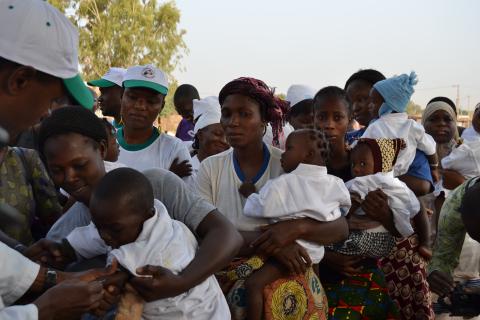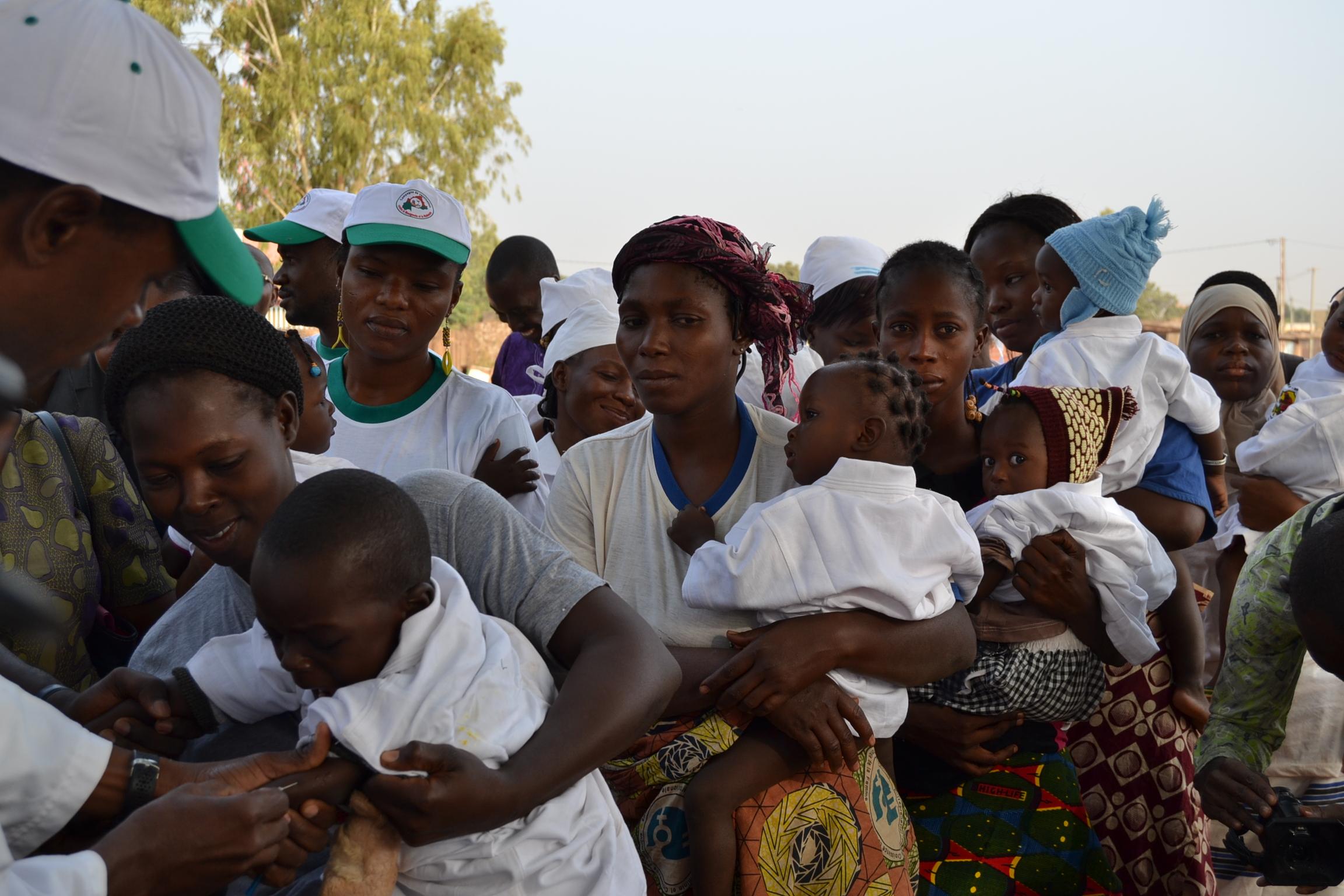
On January 26th, 2017, a year after a change of government in Burkina Faso, a panel discussion was hosted in Ouagadougou on the National Health Development Plan for 2011-2020.
The Minister of Health presided over the start of the meeting, and many were present alongside him for this day of learning and exchange: the Secretaries-General of the Ministries of Finance and of Health, the Central Directors of the Ministry of Health, the Director General of Cooperation, representatives of the Directors in charge of the Treasury and the Budget, as well as technical and financial partners including WHO, UNFPA, the European Union, USAID, the World Bank, UNICEF, UNAIDS, and the Global Fund.
The meeting was an opportunity for the Ministry of Health to share new decisions on the organization of its work at the central level, as well as to advocate for the revitalization of pooled funding for the Health Development Support Program (Programme d’appui au développement sanitaire, PADS).
“On a symbolic level, the panel discussion on the National Health Development Plan broadly reaffirms the Ministry of Health’s leadership, and the leadership of the General Secretariat in particular,” explains Alexis Bigeard, Health Financing Policy Advisory for the WHO Inter-Country Support Team for West Africa.
The major health-related projects of the president’s program were launched immediately following the election of His Excellency President Kaboré, beginning with free healthcare for pregnant women and children under 5 years. “Just six months after the election, 20% of the population of Burkina Faso had access to free essential health services,” added Bigeard.
Besides the meeting’s symbolic importance, several concrete decisions on the health sector were made and communicated on January 26th.
For example, three thematic groups will be set up, aligning to the three health sector budget programs, to take on the role of “client” for reforms and investments. Seven results-oriented functional teams are also being established (one on multi-sectoral nutrition management, another on coordinating actions to reform the supply system for essential drugs, etc.). Each budgetary program now has an associated list of indicators and targets.
These exchanges between different healthcare stakeholders were made possible in part from the quality of the policy dialogue, itself the result of a strong commitment from the authorities and of collaboration with technical and financial partners. The EU-Luxembourg-WHO Universal Health Coverage Partnership has been part of these joint efforts, with funding and technical support aimed towards creating a comprehensive, coherent collaboration framework.
Mr. Bigeard hopes that UHC experts (on governance, on health systems financing) will continue to participate in developing new policies.
“The technical support provided by the UHC Partnership is necessary to help identify priority issue areas, to build capacity, and to participate in aligning partners.”
Next steps in Burkina Faso’s health systems reform include continued support for political dialogue. “The experts have to dive deep into technical aspects, in order to come up with objective opportunities for reform,” says Mr. Bigeard.
“Their presence in the policy dialogue will help popularize certain concepts, and help the current set of partners to communicate better.”
